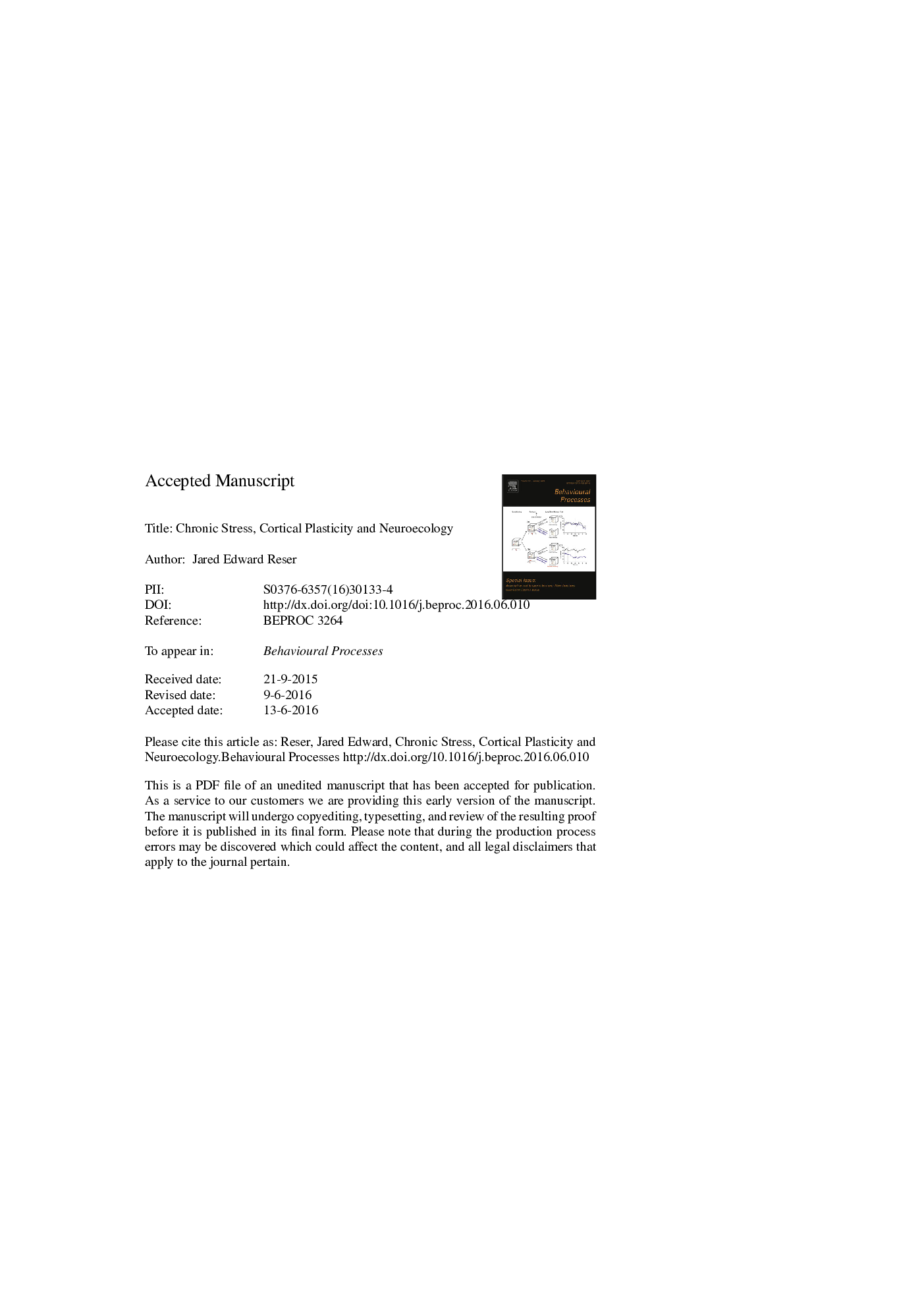| Article ID | Journal | Published Year | Pages | File Type |
|---|---|---|---|---|
| 8497069 | Behavioural Processes | 2016 | 36 Pages |
Abstract
Prolonged psychological stress and accompanying elevations in blood cortisol are known to induce hypometabolism and decreasing synaptic density in the hippocampus and the prefrontal cortex (PFC). This article evaluates and explores evidence supporting the hypothesis that these, and other, selective effects of prolonged stress constitute a neuroecological program that adaptively modifies behavior in mammals experiencing adverse conditions. Three complementary hypotheses are proposed: (1) chronic stress signifies that the prevailing environment is life-threatening, indicating that the animal should decrease activity in brain areas capable of inhibiting the stress axis; (2) stress signifies that the environment is unpredictable, that high-level cognition may be less effective, and that the animal should increase its reliance on defensive, procedural and instinctual behaviors mediated by lower brain centers; and (3) stress indicates that environmental events are proving difficult to systemize based on delayed associations, and thus the maintenance of contextual, task-relevant information in the PFC need not be maintained for temporally-extended periods. Humans, along with countless other species of vertebrates, have been shown to make predictive, adaptive responses to chronic stress in many systems including metabolic, cardiovascular, neuroendocrine, and even amygdalar and striatal systems. It is proposed in this article that humans and other mammals may also have an inducible, cerebrocortical response to pronounced stress that mediates a transition from time-intensive, explicit (controlled/attentional/top-down) processing of information to quick, implicit (automatic/preattentive/bottom-up) processing.
Keywords
Related Topics
Life Sciences
Agricultural and Biological Sciences
Animal Science and Zoology
Authors
Jared Edward Reser,
